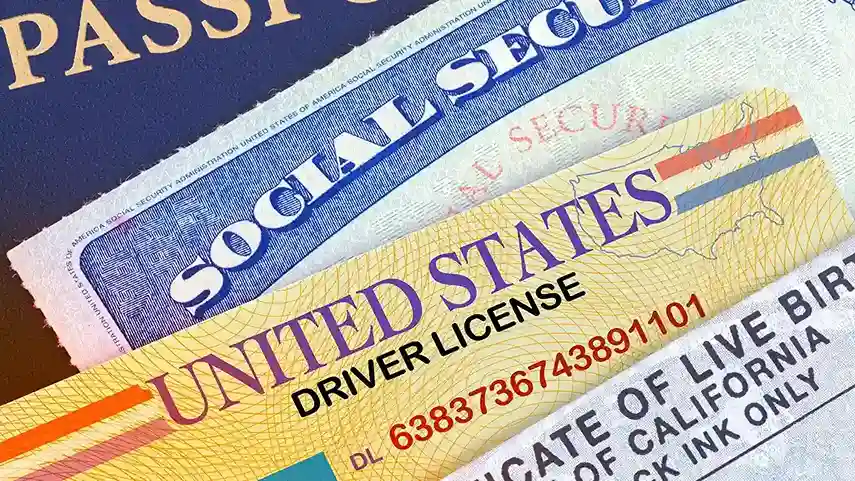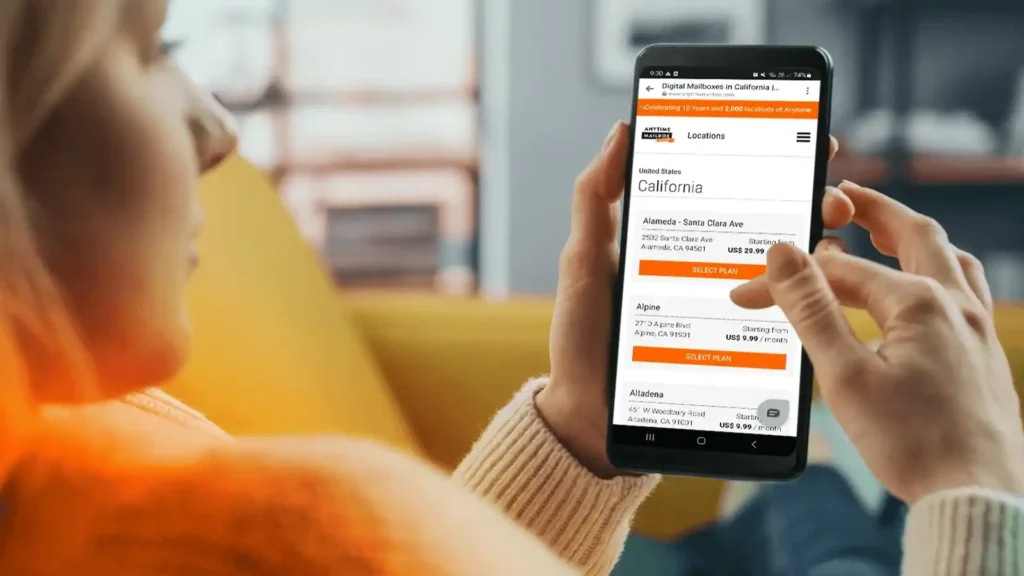

A permanent address is a fixed location where you officially reside and which serves as a point of contact for legal and official documents. Its importance lies in providing stability for personal identification, legal recognition, and access to essential services. Understanding “what is a permanent address and why is it important” helps you navigate various aspects of life, from voter registration to securing employment.

A permanent address refers to a fixed location that you consider your prime residence. It serves as a stable point of contact for legal and official matters. This address, whether it’s an apartment, house, or another form of dwelling, typically remains unchanged for long periods. This makes it distinct from temporary or mailing addresses, which can change frequently based on your current location or preferences.
But what makes an address truly “permanent”? It’s the place where you reside, and it’s typically listed on crucial documents such as your driver’s license or passport. It’s also the address you’d use for voter registration and other legal purposes. In essence, a permanent address is your home of record, the anchor in your day-to-day life.
A permanent address goes beyond being just a physical location; it embodies a legal and societal identity. It is a fixed location where you reside for extended periods, unlike temporary or mailing addresses. It’s the address that appears on all your important documents, like your driver’s license and passport, marking you as a resident of that location. This stability is crucial for maintaining legal and official connections.
Furthermore, a permanent address is habitually used and isn’t subject to frequent changes. This makes it different from a temporary address, which might change with your job, schooling, or other life circumstances. Whether it’s a house, an apartment, or another type of dwelling, your permanent address serves as the main point of contact for receiving mail and establishing your identity in various legal contexts. However, if you need to make a permanent address change, it’s important to update your records accordingly.
The key characteristics of a permanent address are what give it its significance. For starters, this address is typically indicated on identity documents, such as your driver’s license and voter registration card. This ensures that your residency is legally recognized and that you can participate in civic duties like voting.
A permanent address doesn’t have to be unique to one individual. Multiple people can share the same address, like family members living in the same house. Moreover, it’s not just residential buildings that can have permanent addresses; some businesses and institutions also maintain them as their legal residences. This flexibility allows for various living and business arrangements, making the concept of a permanent address versatile.

A permanent address is pivotal for various reasons, extending beyond just a location for mail reception. It encompasses legal recognition, personal identity, access to services, and provides security and continuity in life. Without a permanent address, you might find it challenging to access essential services, maintain personal safety, and keep up with important correspondences.
A permanent address serves as a stable point of contact, ensuring that you can be reached for legal and administrative matters, personal identification, and emergency situations. It’s a vital component of modern life that helps maintain order and continuity. Let’s explore these aspects in more detail.
A permanent address is often required for legal documents and official records, making it indispensable for continuous legal recognition. For instance, a permanent address is necessary for:
Having a permanent address is important as it serves as proof of residency and identity, while your present address may change over time.
Moreover, official notifications, such as court summonses and government correspondence, are typically sent to your permanent address. This makes it essential for staying informed and compliant with legal obligations. Without a permanent address, managing these important aspects of life would be significantly more challenging.

A permanent address plays a crucial role in establishing personal identity and providing a sense of stability. Place identity involves emotional bonds and personal connections to a location, which are vital for one’s well-being. This attachment to your home and local area is linked to positive health outcomes and greater community participation.
Moreover, having a permanent address fosters a sense of reliability and belonging. It signifies a stable point in your life amidst the uncertainties of daily living.

Access to many essential services hinges on having a permanent address. Driver’s licenses and vehicle registrations, for instance, generally require a permanent address for issuance and renewal. Similarly, job applications often ask for a permanent address, making it difficult to secure employment without one.
Financial institutions also require a permanent address for opening bank accounts and obtaining credit cards. This address helps maintain continuous access to banking, healthcare, insurance, and other vital services. Without a permanent address, navigating these administrative processes becomes significantly more challenging.
A permanent address ensures security and continuity by providing a stable location for receiving critical documents and correspondence through the United States Postal Service. This stability means important mail isn’t lost or delayed, and individuals can be reached in emergencies.
For families, a permanent address also ensures consistent mail delivery for school-related information and official notifications, providing a sense of reliability. In essence, a permanent address is a cornerstone of security and continuity in one’s life.
Protecting the privacy and security of your permanent address is vital. This can be achieved by using strong passwords, ensuring websites are secure before entering personal information, and selecting reliable virtual mailbox providers.
A permanent address provides a fixed location for receiving sensitive information, safeguarding against identity theft. When choosing a virtual mailbox provider, look for features that ensure your data is secure, like encrypted communication and robust privacy policies.
Not having a permanent address can present significant challenges. Receiving important mail and documentation becomes difficult, and accessing essential services like healthcare and social assistance can be problematic.
Homeless individuals, in particular, face significant safety concerns and lack a secure place to sleep. The absence of a permanent address can impact various aspects of life, including:
These challenges make it harder for homeless individuals to maintain stability and security.

Getting a permanent address can be achieved through traditional means or by using virtual mailbox services. Traditional options include renting or owning a home, apartment, or even using a family member’s address. But what if these options are not feasible for you?
Virtual mailbox services provide an innovative solution by offering a permanent address that you can access remotely. These services are particularly beneficial for digital nomads, expatriates, and individuals who need a stable mailing address but don’t have a fixed home. Let’s delve deeper into the differences between traditional and virtual permanent addresses.
Traditional permanent addresses, like a home address or apartment, provide a physical location where you reside. However, virtual mailbox services offer a modern alternative by digitizing your postal mail and allowing access from anywhere. This is particularly useful for those who travel frequently or have multiple residences, as it eliminates the need for a traditional address form and reliance on a local post office for mail collection, making the post office less essential in managing your correspondence.
Virtual mailboxes also offer additional services like mail forwarding, secure shredding, and check depositing, which traditional post office box and po box addresses cannot provide. They accept mail from all providers, unlike P.O. Boxes, which only accept mail from USPS. This flexibility makes virtual mailboxes a convenient option for many.
Virtual mailbox services have proven to be beneficial for various users, acting as a modern alternative to the traditional postal service. For instance, a digital nomad running an online business can receive essential documents and packages promptly from anywhere. Similarly, a small e-commerce business can efficiently manage purchase orders, invoices, and shipping notifications.
Success stories highlight the convenience and flexibility offered by virtual mailbox services. For example, a business owner may benefit from a separate mailing address to protect his home privacy and act as a ‘physical’ address for mail, demonstrating the positive impact of virtual mailboxes on both personal and professional lives.
When considering a virtual mailbox service, look for cost-effective options, 24/7 access, and multiple pricing plans. Providers like Anytime Mailbox offer free mobile apps and addresses in premium locations, adding to the convenience.
Ensure that the provider offers robust data security features, such as encrypted communication and secure storage, to protect your information. By choosing a reliable virtual mailbox service, you can enjoy the benefits of a permanent address without the limitations of a fixed physical location.
There are several common misconceptions about permanent addresses. One is that all addresses include standard components like postal codes and state fields, which is not true for many global locations. Some regions operate without postal codes, and their absence doesn’t invalidate the address.
Another misconception is that address formats are universally consistent, but they can vary greatly between countries. People also often assume that addresses will always fit into predefined form fields, but some places have complex formats that don’t conform to standard fields. Clarifying these misconceptions helps better understand the flexibility and variability of permanent addresses worldwide.
A permanent address is a fixed location that serves as a person’s main residence, used for legal and official connections, stability, and receiving mail. It’s where you’re officially registered and receive important documents.
Having a permanent address is important because it provides legal recognition, personal identity, access to services, and ensures security and continuity in life. It’s a crucial aspect of everyday living.
You can sign up for a virtual mailbox service that offers a permanent address accessible remotely, which is perfect for frequent travelers. This allows you to have a consistent address without being tied down.
Yes, virtual mailbox services are secure, as reliable providers offer encrypted communication and secure storage to protect your information.
Many people mistakenly believe that all addresses include postal codes and that address formats are universally consistent, but this isn’t necessarily true globally. It’s important to be aware of the variations in address formats when seeking a permanent address abroad.
 +1 (702) 935 5664
+1 (702) 935 5664 +61 1800 951 410
+61 1800 951 410 +1 (775) 500 0579
+1 (775) 500 0579